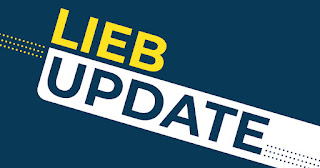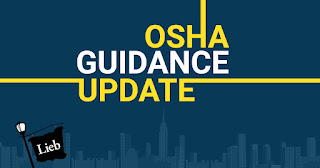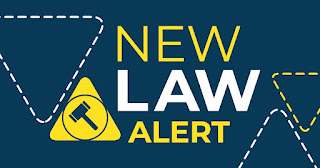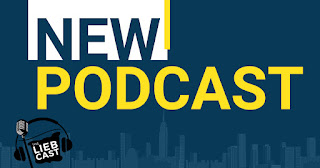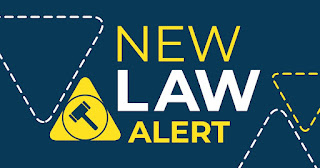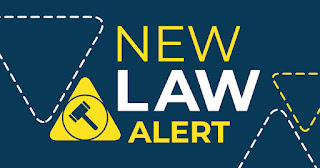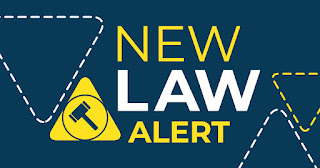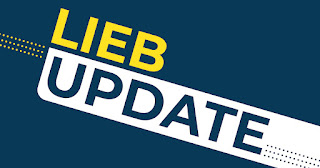As the year comes to a close, we want to remind employers of the following recent laws, regulations and guidance related to the workplace, many of which are currently in effect or take effect early next year.
1) Vaccine/Mask Mandates
NYC, via an Order of the Commissioner of Health and Mental Hygiene, now requires that all employers ensure that its workers are vaccinated against COVID-19. All private sector workers had to receive their first dose of a COVID-19 vaccine by December 27, 2021 and a 2nd dose 45 days later. Employers are further required to verify and keep a record of each worker's proof of vaccination. Workers may seek a reasonable accommodation for a qualifying disability or sincerely held religious belief. Violators may be penalized $1,000 per violation.
- OSHA (Federal) Mask Mandate
Citations (with large monetary penalties) for non-compliance with the OSHA vaccine mandate for all employers with 100+ employees is scheduled to begin on January 10, 2022. OSHA's mandate requires that qualifying employers ensure that all employees "be vaccinated or wear a protective face covering and take weekly tests." While the Sixth Circuit upheld the vaccine mandate, the U.S. Supreme Court will hear oral arguments on the vaccine mandate on January 7, 2021. Stay tuned to our blog for updates.
Governor Hochul's statewide mandate requiring face mask/covering at all indoor public places is currently effective until January 15, 2022 (to be re-evaluated after this date). The mandate does not apply to indoor public areas that require proof of vaccination as a condition of entry. However, a business cannot "mix and match" i.e. permit individuals who show proof of vaccination to enter mask free while permitting those who do not present proof of vaccination to enter wearing a mask. Either no one is permitted entry that cannot provide proof of vaccination or everyone must wear a mask (whether vaccinated or not).
2. New York State HERO Act
On May 5, 2021, the NY HERO Act was signed into law in order to protect employees against exposure and disease during an airborne infectious disease outbreak. The HERO Act requires employers to take certain measures to protect their employees in the event of an outbreak including implementing an exposure prevention plan. On September 6, 2021, NYS Dept. of Health designated COVID-19 as a highly contagious communicable disease, which means that employers must currently have a written airborne infectious disease policy in effect.
3. Notice of Employee Monitoring
Pursuant to a new law signed by Gov. Hochul, beginning on May 7, 2022, employers in NYS who wish to monitor or otherwise tap telephone calls, e-mails, or internet access of an employee via any electronic device or system, must give prior written notice upon hiring to all employees. Additionally, each employer must post the notice of electronic monitoring in a visible place in the office. Businesses will be subjected to fines for violations.
4. Cannabis Use in the Workplace
The Department of Labor issued guidance on Section 201-D of the NY Labor Law which prohibits an employer from discriminating against employees for using cannabis outside of the workplace on their own time. While, per the guidance, an employer may prohibit cannabis use during work hours, an employer may only discipline employees (where employee did not use cannabis during work hours) who "manifest specific articulable symptoms of impairment" due to cannabis use. For example, odor of cannabis, without more, is insufficient to discipline an employee.
5. Whistleblower Protections
Effective January 26, 2022, employees/independent contractors will have significantly expanded whistleblower protections, pursuant to Labor Law 740, if they disclose or threaten to disclose, to a supervisor or to a public body, an activity, policy or practice of the employer, that the employee reasonably believes is in violation of law, rule or regulation or that the employee reasonably believes poses a substantial and specific danger to the public health or safety.
6. Shared Work Program
Employees, without fear of retaliation, may petition their employer, in writing in advance of a layoff or within ten (10) days after a layoff to implement a “Shared Work” program (A shared work program was formed to assist employers in avoiding layoffs and maintain trained workers during an economic downturn by allowing employees to receive partial unemployment benefits while working reduced hours).
7. Requirement to Include Minimum and Maximum Salaries for all Posted Positions
Beginning in April 2022, unless vetoed by January 14, 2022, a new law will require NYC employers to include in all job advertisements, the minimum and maximum salaries for the posted position. Positions extend to jobs, promotions, or transfer opportunities. Employers that fail to include the minimum and maximum salaries will be in violation of the NYC Human Rights Law.
8. Mandatory Enrollment in Retirement Plan
Governor Hochul recently signed legislation that will require private sector employers who do not provide their employees with a retirement plan to automatically enroll their employees in New York State's Secure Choice Savings Plan. Employees are able to opt out of the program at any time. Stay tuned for more details as the program is developed and implemented.
Happy New Year!

